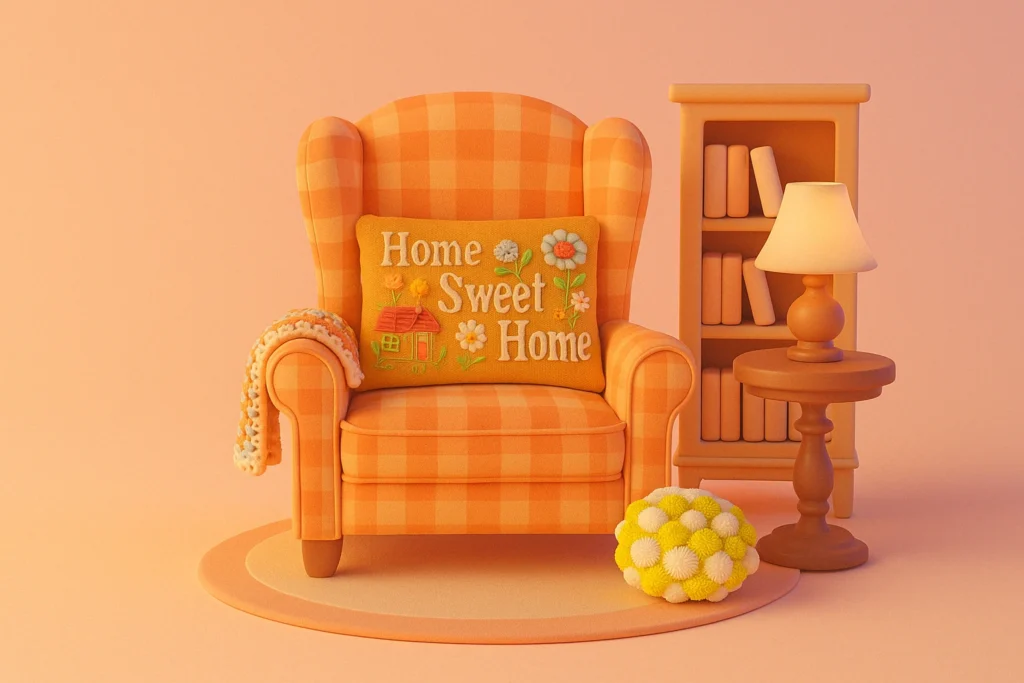
When Grandparents
Fill Our Parental Needs
In the corner of her kitchen sat a glass candy jar. Always filled, never empty. You didn’t have to ask—it was just understood. Just like her love. For some of us, the deepest comfort didn’t come from our parents, but from a quiet hero in soft slippers. A grandmother who hummed while folding towels. A grandfather who knew just when to slide a Werther’s across the table with a wink. Their homes smelled like safety. Their hugs were permission to just be.
Table Of Contents
- When Safety Didn’t Come From Home, But from Somewhere Else
- The Silent Ache: What Happens When Emotional Needs Go Unseen at Home
- Performing for Love: When You Only Felt Seen for What You Did—Not Who You Were
- Emotional Parentification: When You Were the Grown-Up Too Soon
- Invisible in Plain Sight: The Loneliness of Not Being Known by Your Parents
- 4 Truths Every Inner Child Needs to Hear
- Breaking the Cycle: Healing the Inner Child, Loving Yourself, and Setting Boundaries
- Coming Full Circle: The Jar Was Never Just Candy
- Now It’s Your Turn to Rise
When Safety Didn’t Come From Home, But from Somewhere Else
It wasn’t supposed to be that way—kids should feel emotionally safe in their own home. But when love feels like a moving target or something that must be earned, many children learn early how to brace themselves—for noise, for criticism, for silence.
And then, like sunlight through stained glass, someone different enters the picture.
A grandparent who didn’t need you to perform. Who didn’t withhold affection when you got it wrong. Who saw your tired eyes and read between the lines.
Who maybe didn’t say the words, but made them clear in other ways: You matter. You are wanted. You are enough.

At first, that kind of love might have felt unfamiliar. But slowly, it softened the armor. A bowl of sliced oranges. A warm blanket folded at the end of a guest bed. A candy jar, always full.
That kind of steady love doesn’t ask much—but it gives everything.
As adults, we may still wrestle with the ache of what we didn’t receive from our parents. But there is something sacred about the ones who stepped in. The ones who filled the emotional gap. The ones who loved us without conditions and showed us a version of what love was supposed to feel like.
And every now and then, when the world gets too loud, we find ourselves longing for that quiet kitchen… that soft humming…
and that ever-present candy jar.
Because in that jar wasn’t just candy.
It was a promise.
You cannot be lonely if you like the person you’re alone with.
~ Dr. Wayne Dyer
The Silent Ache: What Happens When Emotional Needs Go Unseen at Home
Sometimes the deepest wounds are the quietest.
There may not have been shouting or chaos. You may have had clean clothes, warm meals, and help with homework. But what you didn’t have… was emotional presence. The kind of connection that tells a child: you are not alone in this.
In a home like that, you learn not to expect comfort. You learn that feelings are inconvenient. You begin to internalize the belief that your emotional needs are “too much.”
This silent ache often follows us into adulthood, showing up in subtle ways: emotional disconnection, people-pleasing, or a chronic sense of being “too needy.”
Performing for Love: When You Only Felt Seen for What You Did—
Not Who You Were
Many children in dysfunctional homes become high achievers. Why? Because performance often becomes a survival strategy.
You were praised when you got the A, when you stayed quiet, when you didn’t stir the waters. You were rewarded for self-erasure. Over time, the message becomes clear: Love is conditional. Love is earned.
Now, even as an adult, you might struggle with this wiring. You find yourself hustling for approval, striving to prove your worth—only to feel exhausted, unseen, and emotionally empty.
But you were never supposed to earn love. You were supposed to receive it.

Emotional Parentification: When You Were the Grown-Up Too Soon
In emotionally immature homes, roles often get reversed. You become the emotional anchor. The peacemaker. The soother. You learn to anticipate needs, de-escalate moods, and keep things “together.”
But all of that maturity came at a cost.
You may have been told you were “so responsible” or “so mature for your age.” What they didn’t tell you is that you were carrying burdens no child should bear.
Now, you may find it hard to ask for help. Hard to trust that someone else can hold you. And hardest of all—letting yourself rest without guilt.
Because you were taught that your value lived in what you could do for others—not in who you are.
Invisible in Plain Sight: The Loneliness of Not Being Known by Your Parents
You could sit across the dinner table from your parent every night and still feel like a stranger.
They saw your actions, not your essence. They commented on your grades, not your grief. You were there—but never fully known.
That emotional invisibility runs deep. And as adults, it can lead to painful patterns: fearing intimacy, questioning your worth, or constantly trying to “prove” yourself in relationships.
But it wasn’t your fault. You were worthy of being known all along.
4 Truths Every Inner Child Needs to Hear
-
It wasn’t your job to fix the family.
-
You didn’t ask for too much—you asked in the only way you could.
-
You were lovable, even in your messiest moments.
-
You’re allowed to choose a different kind of love now.
Breaking the Cycle: Healing the Inner Child, Loving Yourself, and Setting Boundaries
Now you’re grown. You’re functioning in an adult world—sometimes successfully, other times barely holding it together. Inside you lives a younger self still carrying unanswered questions: Why wasn’t I enough? Why didn’t they see me?
But here’s the miracle of healing: You don’t need them to go back and fix it.
You can begin to parent yourself now. To love yourself gently. To say, “It’s okay to have needs. It’s okay to say no. It’s okay to choose myself.”
Signs you’re already healing:
-
You stop over-explaining your feelings.
-
You feel safe setting boundaries, even if it’s uncomfortable.
-
You give yourself rest without guilt.
-
You seek connection, not just approval.
-
You begin talking to yourself with tenderness instead of judgment.
You’re not just surviving anymore.
You’re reclaiming.
You’re becoming.
Coming Full Circle: The Jar Was Never Just Candy
And so we return to that quiet kitchen.
To the candy jar on the counter—unchanged, unwavering, always full.
It wasn’t just about the sugar. It never was.
It was about being welcomed without needing to earn it. It was about feeling safe just by being there. It was a silent message: you are enough.
Maybe the jar isn’t on their counter anymore.
Maybe that home—and the person who filled it—is gone.
But the deeper truth remains:
The real sweetness wasn’t in the candy.
It was in the way you were loved.
And now, you begin to see: that sweetness lives in you.
It’s in the grace you offer yourself.
It’s in the boundaries you draw.
It’s in the softness you practice after years of being hard on yourself.
That jar? It’s yours now.
And this time, it stays full—because you’re the one who’s filling it.
Now It’s Your Turn to Rise
If something stirred in you as you read this—if you felt the ache of old wounds, or the flicker of forgotten sweetness—please don’t brush it aside. That feeling is sacred. It’s your inner self asking to be seen, held, and healed.
You don’t have to have it all figured out.
You just have to begin.
📖 Maybe that means picking up the right book—the one that puts your story into words.
🧠 Maybe it’s sitting with a counselor or mentor who can help you untangle the threads with compassion.
🌱 Or maybe it’s starting a healing journey of your own—through one of our courses, or simply by giving yourself space to feel what was never allowed before.
If you’re not sure where to start, we invite you to visit our [Resource Page] — a lovingly curated list of recommended books by The Gaslight Files team to support your next step. You might just find the words you’ve been waiting to hear.
Whatever your next step looks like—know this:
You are not alone.
You are not too late.
And there is a sweetness inside you still waiting to be tasted.
You have what it takes to rise.
And you don’t have to wait for permission anymore.






